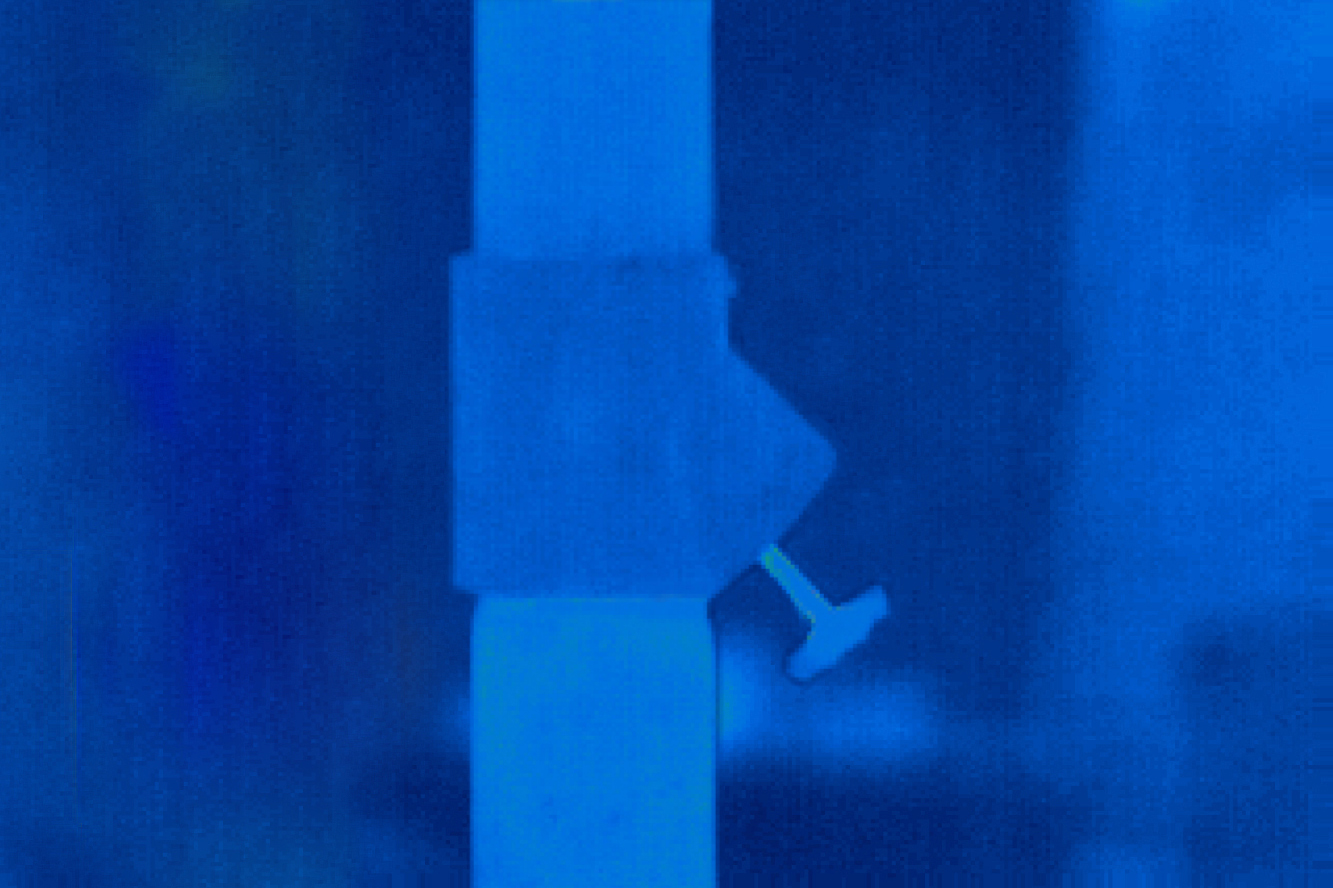
Are you a homeowner?
Use your savings potential now

Are you a homeowner?
Use your savings potential now
Are you a homeowner who has invested several thousand euros in your new and efficient heating system and would like to reduce your energy costs in the long term?
But you are still wasting valuable energy because your system is not fully insulated?
Would you like to meet your obligations under the GEG (Building Energy Act) and avoid having to report defects when the heating system is inspected (for new installations) or as part of the fireplace inspection (every 3 1/2 years) by the chimney sweep (GEG §97 Para. 1 and 2)?
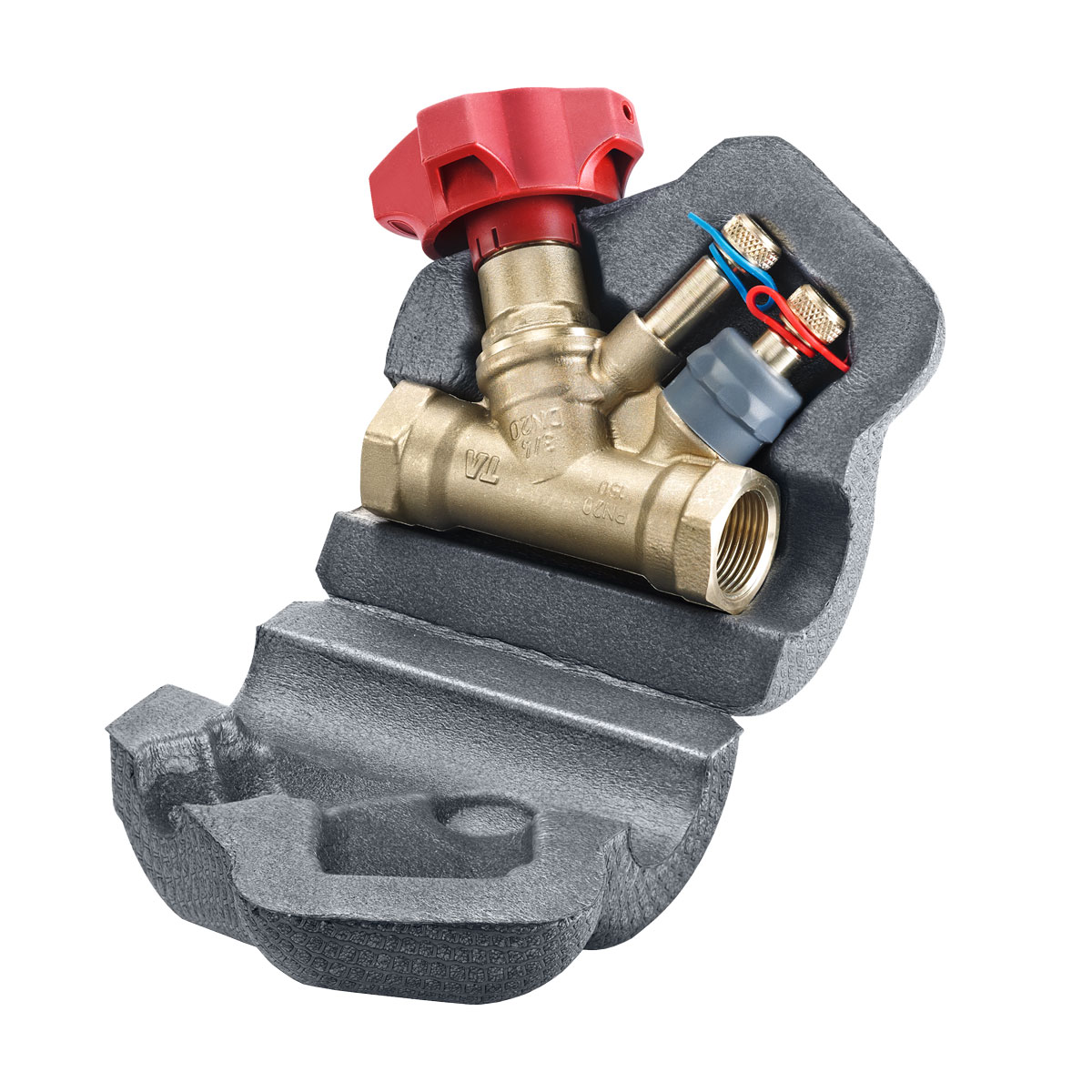
What do you need to consider?
The new Building Energy Act (GEG) has been in force since November 1, 2020.
The purpose of the law is to ensure the most economical use of heating, cooling and electricity for building operation (Section 1 GEG) and to define responsibilities.
§ 8 Responsible parties
(1) The client or owner shall be responsible for compliance with the provisions of this Act, unless another responsible party is expressly designated in this Act. (2) Persons who work on behalf of the owner or builder in the construction or alteration of buildings or the systems engineering in buildings shall also be responsible for compliance with the provisions of this Act within the scope of their respective sphere of activity.
§ 69 Heat distribution and hot water pipes and fittings
If heat distribution and hot water pipes and fittings are installed in a building for the first time or if they are replaced, the client or owner must ensure that the heat emission of the pipes and fittings is limited in accordance with Annex 8.
§ Section 108 Fines regulations
(1) It shall be an administrative offense to intentionally or recklessly (...) 7. fail to ensure that the heat emission or heat absorption of pipes or fittings referred to in § 69, § 70 or § 71 (1) is limited, (...). ) (2) The administrative offense may be punished in the cases of paragraph 1 numbers 1 to 9 with a fine of up to fifty thousand euros, in the cases of paragraph 1 numbers 10 to 17 with a fine of up to ten thousand euros and in the other cases with a fine of up to five thousand euros.
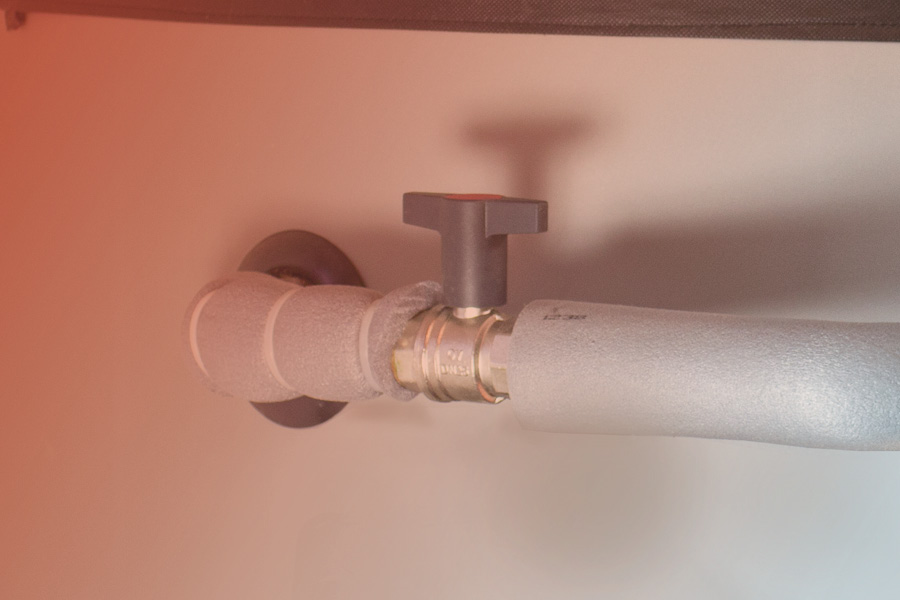
Valves in the boiler room are not insulated
High energy loss!
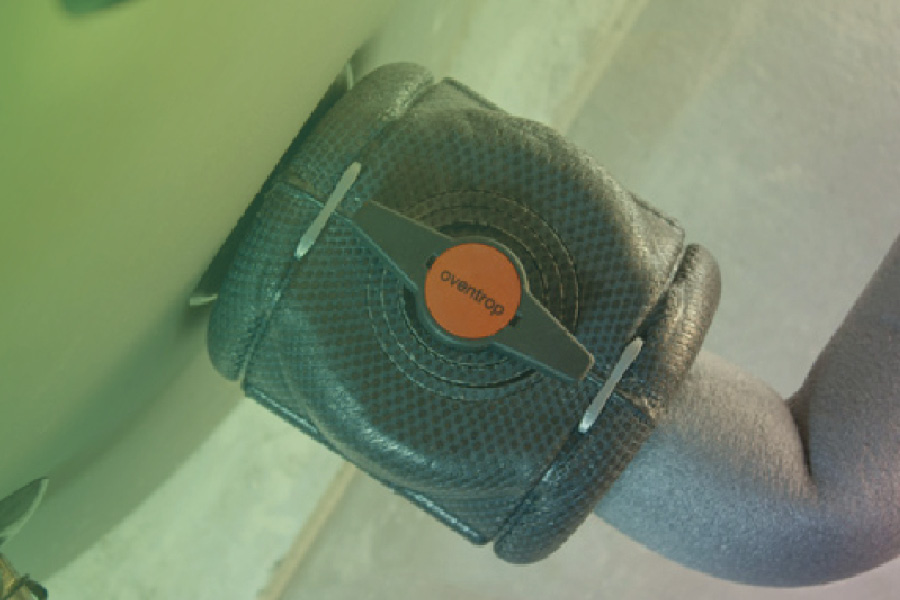
Valves and pipes according to specifications
of the GEG 2020
No energy loss!
Hot water installation in an uninsulated state. Due to the flow resistance, the greatest heat loss occurs at the valve, as the hot water temperature drops more here due to the resistance of the pipe and the changing flow conditions. This effect can be considerable, particularly with longer pipe runs or inadequately insulated pipes, and can lead to unnecessary energy loss.
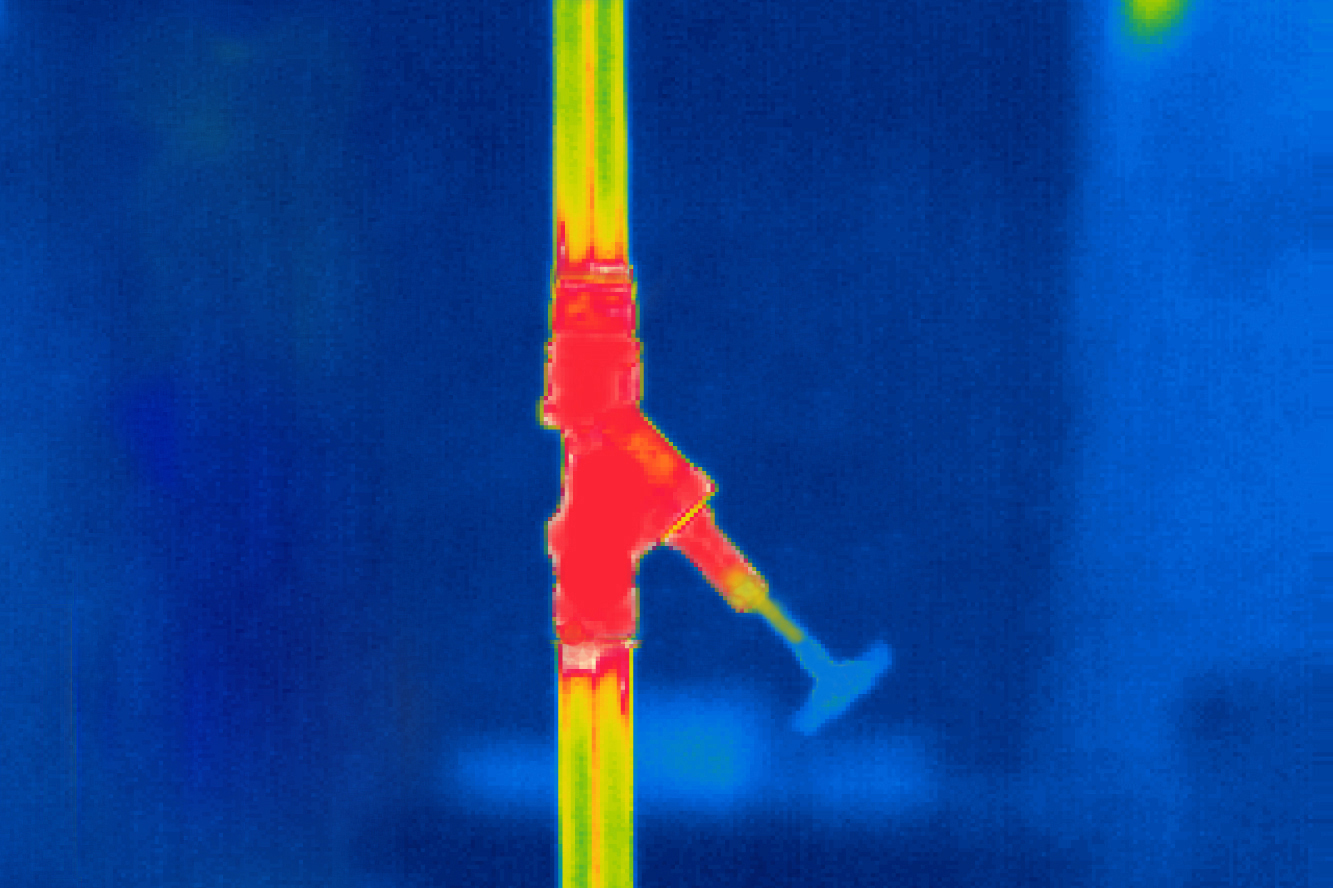
The use of vela[clip] reduces heat loss at the valve to a minimum. The innovative system ensures that heat is retained more efficiently in the pipe system by minimizing thermal bridges at critical points such as the valves. With vela[clip]'s specially developed technology, the insulation is applied directly at the source of the heat loss, keeping the temperature of the transported hot water constant over longer distances.
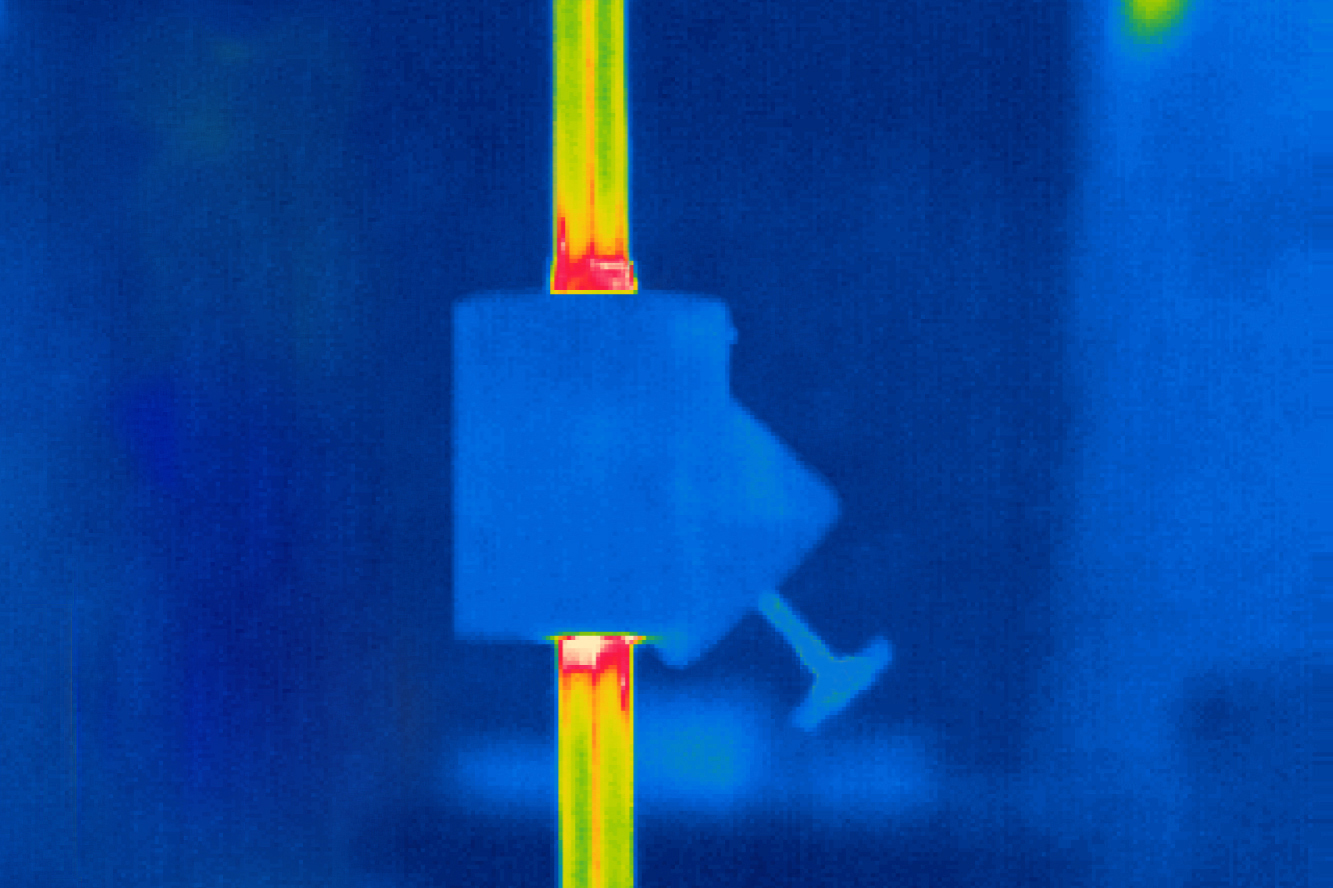
Holistic thermal insulation and cold insulation in accordance with the German Building Energy Act (GEG) and DIN 1988 ensures efficient use of energy and a reduction in heat and cold losses throughout the entire pipe system. The consistent application of these standards not only minimizes heat loss at critical points such as valves and connections, but also optimizes the building's entire heating and cooling technology.
